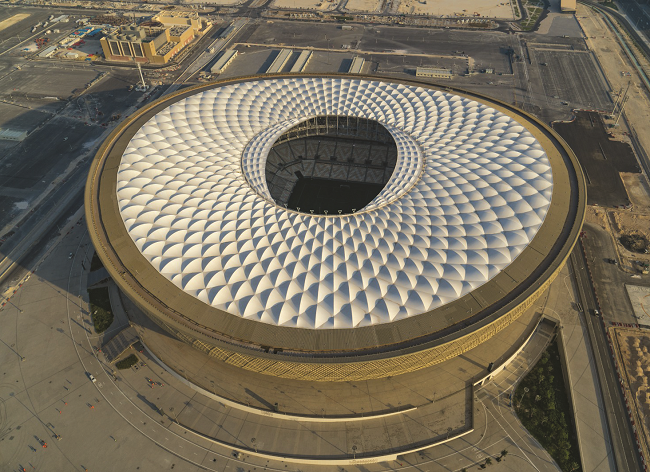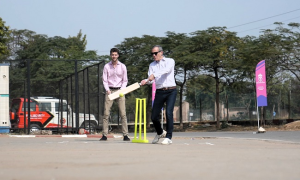Embodying Qatar’s ambition, along with the country’s passion for sharing Arab culture with the world, the 80,000-capacity Lusail Stadium will host the Lusail Super Cup between the champions of Saudi Arabia and Egypt on Friday 9 September.
Lusail will be the eighth and final FIFA World Cup Qatar 2022™ tournament venue to be unveiled after Khalifa International, Al Janoub, Education City, Ahmad Bin Ali, Al Thumama, Al Bayt and Stadium 974.
Lusail is Qatar’s biggest stadium and will host matches during every stage of this year’s World Cup, including the final on 18 December, which is also Qatar National Day.
The spectacular venue will become the centrepiece of Lusail – a newly-built, state-of-the-art metropolis, designed specifically with residents’ needs in mind. The stadium writes a new page in Qatar’s story, while paying homage to the rich history of the country and region.
Here are five key facts about Lusail Stadium:
Modern, yet historic
Fittingly futuristic, Lusail’s design is inspired by the interplay of light and shadow that characterises the fanar lantern. The stadium’s shape and facade echo the intricate decorative motifs on bowls and other vessels characteristic of the golden age of art and craftsmanship in the Arab and Islamic world.
Fit for a final
Lusail will host ten matches during the World Cup – which is more than any other Qatar 2022 venue. In addition to six group stage games, it will host knockout contests in the round of 16, quarter-finals, semi-finals and final. The first World Cup match to be hosted at Lusail will be the Group C clash between Argentina and Saudi Arabia on 22 November.
A community hub
The stadium and surrounding precinct are set to feature a host of civic facilities, including housing, shops, food and beverage outlets, a health clinic and school. After the World Cup, the modular upper tier is set to be repurposed, with the seats donated to a community which lacks sporting infrastructure.
Green stadium in a green city
The construction of Lusail employed sustainable building practices and waste water recycling measures. The site conserved 40% more water than conventional stadium developments, with the recycled water used to irrigate plants around the venue. Made from a state-of-the-art material called Polytetrafluoroethylene (PTFE), the roof protects the stadium from warm wind, keeps out dust and allows in enough light for the pitch to grow, while providing shade to reduce the burden on the stadium’s cooling technology. These sustainable building practices resulted in Lusail receiving a five-star rating for Design & Build and Construction under the Global Sustainability Assessment System.
Close to public transport
Hayya Card holders will be able to use Qatar’s state-of-the-art public transport system for free from 11 November to 23 December 2022. Fans will be able to access the stadium by using the Doha Metro and arriving at Lusail QNB Station, which is on the Red Line and a short distance from the venue. Drivers will be able to access the stadium from the Al Khor Expressway. There will be a number of park and ride facilities in close proximity to the stadium. Post-2022, people will be able to reach the facility by using the Lusail Light Rail Tram.
Tags: FIFA World Cup, Lusail Stadium, Qatar









